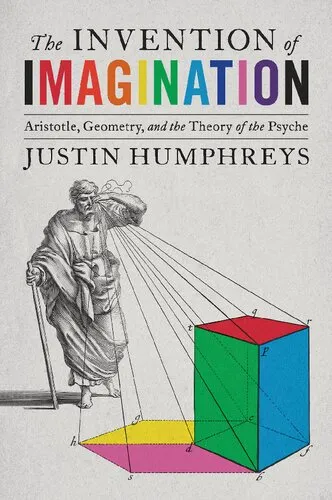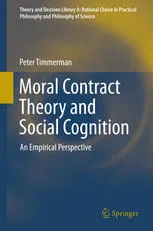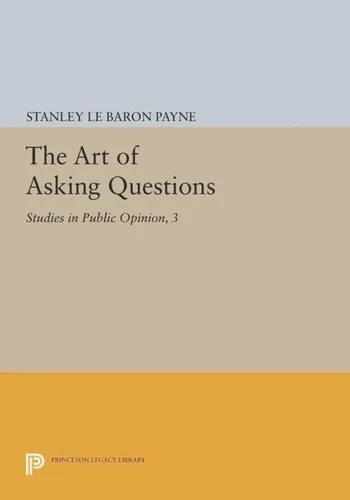Aristotle's Practical Side: On His Psychology, Ethics, Politics And Rhetoric
4.5
بر اساس نظر کاربران

شما میتونید سوالاتتون در باره کتاب رو از هوش مصنوعیش بعد از ورود بپرسید
هر دانلود یا پرسش از هوش مصنوعی 2 امتیاز لازم دارد، برای بدست آوردن امتیاز رایگان، به صفحه ی راهنمای امتیازات سر بزنید و یک سری کار ارزشمند انجام بدینکتاب های مرتبط:
معرفی کتاب «Aristotle's Practical Side: On His Psychology, Ethics, Politics And Rhetoric»
کتاب «Aristotle's Practical Side» یک بررسی عمیق از جنبههای عملی فلسفه ارسطو است که شامل روانشناسی، اخلاق، سیاست و Rhetoric این فیلسوف بزرگ میشود. این اثر که با دقت و تخصص بسیار توسط ویلیام دبلیو فورنباف نوشته شده است، خواننده را به کاوشی در دنیای عملی اندیشه ارسطو دعوت میکند و نشان میدهد که چگونه نظریههای او در زندگی روزمره قابل استفاده و پذیرشاند.
خلاصهای از کتاب
The book به بررسی پایههای عملی فلسفه ارسطو میپردازد. هر یک از بخشهای اصلی آثار ارسطو، شامل تحلیلهای مربوط به روانشناسی، اخلاق، سیاست و Rhetoric، به تفصیل مورد بحث قرار گرفته است. نویسنده با استفاده از متون اصلی ارسطو و تفاسیر معتبر، نشان میدهد چگونه افکار او برای درک رفتار انسانی، اصول اخلاقی و شیوههای موثر بینالمللی و سیاسی کاربرد دارد. در این کتاب همچنین به تعامل بین این موضوعات پرداخته شده و نشان داده شده که چگونه این تعامل در سیستم فلسفی ارسطو نقش کلیدی ایفا میکند.
نکات کلیدی کتاب
- توضیحات روشن و جامع در مورد اصول روانشناسی ارسطو، شامل نظریات او درباره روان، احساسات و شناخت.
- بحث تفصیلی پیرامون Ethics و دیدگاههای ارسطو درباره فضیلت، خوشبختی و زندگی خوب.
- تحلیل سیستماتیک از دیدگاههای سیاسی ارسطو که شامل نظریات او درباره سیاستگذاری، عدالت و حکومت ایدهآل میشود.
- بررسی قدرت Rhetoric و اینکه چگونه ارسطو راههای موثر ارتباطی را تحلیل کرده است.
- ارائه تفاسیر مدرن و کاربردی از نظریات ارسطو در دنیای امروز.
نکات ماندگار از کتاب
"Virtue is a state of character concerned with choice, lying in a mean."
"Man is by nature a political animal."
"Rhetoric is the faculty of observing in any given case the available means of persuasion."
چرا این کتاب مهم است؟
این کتاب نقش مهمی در بازتاب تفکر عملی ارسطو بازی میکند و به خوانندگان این فرصت را میدهد تا رابطه بین نظریه و عمل در سیستم فلسفی او را درک کنند. این اثر برای دانشجویان فلسفه، علاقهمندان به اخلاق، سیاست و Rhetoric، و حتی برای کسانی که به دنبال یافتن راهکارهایی برای زندگی بهتر هستند، یک منبع ارزشمند به شمار میآید. فورنباف به گونهای این کتاب را نوشته که نه تنها متخصصان، بلکه عموم علاقهمندان نیز بتوانند از آن بهرهمند شوند.
Introduction to Aristotle's Practical Side: On His Psychology, Ethics, Politics, and Rhetoric
Aristotle, one of the most influential ancient philosophers, is often remembered for his systematic work in metaphysics, logic, and natural sciences. However, his immense contributions to practical philosophy — encompassing psychology, ethics, politics, and rhetoric — remain equally significant. Aristotle's Practical Side: On His Psychology, Ethics, Politics, and Rhetoric draws readers into this realm, offering a comprehensive exploration of these deeply interconnected domains. Guided by Aristotle's own writings and complemented by modern scholarship, this book is both a foundational introduction and a profound analysis of his practical philosophy.
This book shines a spotlight on Aristotle's conviction that philosophy must not only seek abstract truths but also provide practical guidance for living a good life, managing societies, and convincing others through persuasive speech. It systematically dissects Aristotle's insights into human action and decision-making, his understanding of virtue, his theories about political governance, and the role of rhetoric in shaping public discourse. At its core, this book emphasizes Aristotle's belief in the harmony between intellectual rigor and practical application.
Structured with clarity and depth, the book bridges Aristotle's classical texts with contemporary discussions about human psychology, ethical behavior, and governance, ensuring relevance for modern readers.
Detailed Summary of the Book
This book presents a thematic study of Aristotle's practical philosophy, dividing its content into four key areas:
- In the realm of psychology, it delves into Aristotle's understanding of the soul, focusing on its capacities for perception, reasoning, and desire, all of which are integral to human action. Aristotle’s psychological framework underscores the inseparable link between mental processes and ethical conduct.
- The book sheds light on Aristotle's ethical theories, exploring his views on virtues as qualities that enable individuals to make reasoned, moral choices. Central to this is his doctrine of the "Golden Mean," which advocates for balance in ethical decision-making and emotional responses.
- Aristotle’s political insights are thoroughly explored, particularly his vision of the polis (city-state) as the ideal context for human flourishing. The discussion emphasizes his classification of political systems, advocacy for a mixed constitution, and his belief in the role of education and civic responsibility within a well-functioning community.
- Lastly, Aristotle’s rhetoric is elucidated as the art of persuasion grounded in ethos (character), pathos (emotion), and logos (logical argumentation). By connecting rhetoric with ethics, the book shows how persuasive communication aligns with the broader goals of practical philosophy.
Throughout the book, Aristotle’s ideas are made accessible without oversimplification, enriching both seasoned scholars and readers new to his works.
Key Takeaways
- Ethics, politics, and rhetoric are not isolated disciplines; they are deeply interconnected in Aristotle's philosophy, reflecting the holistic nature of human experience.
- Human happiness (eudaimonia) is achieved through virtuous action guided by reason, necessitating the cultivation of both personal and communal virtues.
- Effective rhetoric is not merely about persuasion; it is about ethical persuasion that aligns with truth and justice.
- Political structures must prioritize the common good, balancing personal freedom with collective responsibility.
- Aristotle’s psychological insights remain relevant today, offering perspectives on human motivation, responsibility, and moral development.
Famous Quotes from the Book
The book not only clarifies Aristotle's ideas but also highlights key passages that continue to resonate with modern audiences:
"It is the mark of an educated mind to be able to entertain a thought without accepting it."
"Man is by nature a political animal."
"The aim of art is to represent not the outward appearance of things, but their inward significance."
"Virtue is a mean between two vices, one of excess and the other of deficiency."
Why This Book Matters
Aristotle’s philosophy may have been conceived in ancient Greece, but its relevance endures across centuries. This book matters because it provides a bridge between Aristotle’s timeless insights and the practical challenges of modern life. By emphasizing the harmonious integration of psychology, ethics, politics, and rhetoric, it equips readers with tools to think critically about their own lives and the societies they inhabit.
In an age of political polarization, ethical dilemmas, and the pervasive influence of media, Aristotle’s belief in reasoned discourse, virtuous action, and the pursuit of the common good serves as a compass. For students, scholars, and readers interested in philosophy, this book is a guide to understanding not only Aristotle but the foundational principles of a life well-lived and a society well-governed.
دانلود رایگان مستقیم
شما میتونید سوالاتتون در باره کتاب رو از هوش مصنوعیش بعد از ورود بپرسید
دسترسی به کتابها از طریق پلتفرمهای قانونی و کتابخانههای عمومی نه تنها از حقوق نویسندگان و ناشران حمایت میکند، بلکه به پایداری فرهنگ کتابخوانی نیز کمک میرساند. پیش از دانلود، لحظهای به بررسی این گزینهها فکر کنید.
این کتاب رو در پلتفرم های دیگه ببینید
WorldCat به شما کمک میکنه تا کتاب ها رو در کتابخانه های سراسر دنیا پیدا کنید
امتیازها، نظرات تخصصی و صحبت ها درباره کتاب را در Goodreads ببینید
کتابهای کمیاب یا دست دوم را در AbeBooks پیدا کنید و بخرید
1552
بازدید4.5
امتیاز0
نظر98%
رضایتنظرات:
4.5
بر اساس 0 نظر کاربران
Questions & Answers
Ask questions about this book or help others by answering
No questions yet. Be the first to ask!














